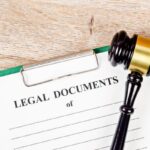Chapter 7 bankruptcy or Chapter 13 bankruptcy can help you to eliminate or reorganize many types of debt, including lawsuit judgments. However, the type of lawsuit judgment that is being discharged in bankruptcy will determine whether it will. It is also important to determine if the creditor that won the judgment has a lien against your property.
Must Read: maritime regulation the upheaval brought on by off shore incident
Bankruptcy Can Discharge Money Judgments
You might be facing lawsuits if you are in debt. Unpaid credit card debt, personal loans, or medical bills are all common causes of breach of contract claims by creditors against debtors.
If you fail to respond to the creditor’s lawsuit, a default judgement is entered against your. If you respond to the lawsuit, and you lose, the court may enter an order against the debt and any other costs including attorney fees.
Your creditor may use the money judgment to garnish your wages, bank account, or take assets to collect the debt. Many people are curious if bankruptcy is possible to get rid of judgments and stop wage garnishment. It can often be, depending on the type and amount of original debt.
Dischargeable vs. Non-Dischargeable Debt
The bankruptcy court will immediately issue an automatic stay to most creditors, requiring them to cease all collection efforts after your bankruptcy petition is filed. They can’t contact your about repayment and any collection lawsuits, foreclosure, repossession or wage garnishment are halted while you work through bankruptcy.
Never Miss: architects engineers and environmental liability
Generally, any court judgments stemming out of any type of dischargeable debt (such as credit card debt, overdue utilities bills, medical bills, personal debts to family members, friends or others) can be dismissed at the end of bankruptcy proceedings. However, bankruptcy will not remove judgments arising from non-dischargeable debt.
This means that a bankruptcy discharge cannot clear judgments stemming out of one of these types of non-dischargeable credit:
- Alimony or child support
- Student loans, unless undue hardship has been proven
- Different types of taxes
- Restitution or criminal fines
- Drunk driving-related debt
There are two other types of debt that can be considered dischargeable, unless the creditor objects or the court agrees. These are the debts relating to:
- Inflicting a willful or malicious injury
- Fraud results in the theft of money, goods and services
Even if the judgment liens were created from dischargeable debts, bankruptcy doesn’t automatically remove them. Keep reading if you have a lien on your property. You will need to take further steps to remove it.
Most Popular: international environmental law and industrial ecology
- A Lien against Your Property
You need to find out if the creditor has placed a lien on your property. The laws of your state may allow the creditor to place a lien on your property. In some cases, the judgment can create a lien by itself.
A judgment lien is similar to a mortgage or car-loan where your house or vehicle is used as collateral. This lien gives creditors rights to your property and usually includes all your property. Although a judgment lien can be a powerful tool for creditors it is sometimes countered by bankruptcy.
To stop a judgment lien by bankruptcy, the original debt must be dischargeable. (See list of non-dischargeable creditors above). Creditors have the right to ask the court for non-dischargeability of other debts, but they must file adversary proceedings in bankruptcy court.
Even though the debt may be dischargeable, bankruptcy will not remove the lien placed by the creditor on your property. You must file a lien avoidance motion with the bankruptcy court to get the lien removed.
To have the lien removed partially or whole, you must be able show the court that there is equity in any property that was affected by the judgment lien. Only the amount that can be exempted from the judgment lien is then removed by the creditor. You could lose your property if you fail to take the extra step of filing a lien avoidance motion.
Also Read: practicing patience family law matters in times of uncertainty
Discuss the best option with a bankruptcy lawyer. You can see that bankruptcy can be very complex, especially when there are property liens. It is a good idea to consult a local bankruptcy lawyer about your options and what steps you should take in order to protect your property. You do not have to go bankrupt. Your attorney can also explain other options.


